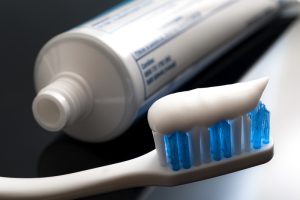Orthodontic Treatment Can Help Your Oral Health
October 18, 2018Improve Your Oral Health During American Diabetes Month
November 6, 2018Toothaches and tooth sensitivity are signs of major dental problems, but they can also be mild dental problems. Changing temperatures in the outside air as well as foods and drinks can cause you mild dental problems. However, when that tooth sensitivity or pain becomes chronic or you have cuts or sores in your mouth, use these remedies to fix your oral health!
Tooth Decay Is a Common Problem
Studies show that 92% of Americans have had tooth decay by the time they reach adulthood. Many don’t even know that they have cavities without seeing a dentist or until they have dental problems suddenly. Patients with tooth decay must suddenly start to feel tooth pain or a full-blown toothache. However, this condition is not actually so sudden.
Decay must happen to all the layers of your teeth for dental pain. In the tooth center, decay and infection will happen where blood vessels and nerves lie, causing you pain. If decay is the problem, you definitely want to see a dentist when you’ve reached the point of a painful toothache. Until that time, remedy some of the pain by using an ice pack in the area of the pain, making sure there is a layer between the ice and your face. Over-the-counter pain medications can help curb some of the toothache pain. However, never physically place aspirin on any area of your mouth, gums or cheek. The internet may tell you to do this for pain relief, but aspirin can actually result in burning your gum tissue.
Once a tooth has decayed, you can’t take away that decay without a dentist drilling it away. You can only curb the pain and swelling at home until the decay is removed. Always call a dentist if you are feeling a toothache that persists for more than a day.
Sensitive Teeth
Tooth sensitivity and toothaches may feel very similar, but they are different. If you zero in on your sudden symptoms, you can detect if you are feeling pain inside a tooth or right on the outside of one. It’s common to have sensitive teeth in the colder winter months. Often, there may be a tiny bit of your tooth root showing right along your gum line.
You may not even visibly detect extra tooth root showing, but you will feel the sensitivity it brings. Breathing through your mouth may bring sharp, sensitive pains from cold air hitting your teeth. The tooth root is not covered by enamel like the rest of your teeth are, so it will react to changes in the temperature of the air as well as foods and drinks. Remedy that tooth sensitivity by using toothpaste made for sensitive teeth.
Try to avoid foods and drinks that are at one temperature extreme or the other (such as hot chocolate). Keep your mouth closed while outside, especially in the winter, and try breathing more often through your nose instead of the mouth. If you participate in winter sports, try using a helmet or mask that covers both the nose and mouth if you have sensitive teeth. With frequent, uncomfortable sensitivity that persists, see your dentist for a dental exam or to have a thin plastic coating painted on your sensitive teeth.
Dental Emergencies at Home
Children often lose their teeth at home. If they lose a tooth too young, make sure they have a dental evaluation to make sure a permanent tooth isn’t coming in incorrectly. You can stop a bleeding gum from a lost tooth by placing gauze or cloth (wound in a tight wad) in the area, adding pressure to it. Seek help from a dentist if you are unable to get the bleeding stopped after 20 minutes.
A cracked, broken or knocked-out permanent tooth can be quite serious. Permanent teeth can be lost for good if dental action isn’t taken. Cracked teeth are either visible or they cause tooth pain when biting down on them (even lightly). You can lose a broken or cracked tooth permanently without dental intervention. When these happen, recover any tooth fragments, if possible. Place them in milk or water and take them to the dental office.
For a knocked-out tooth, reinsert the tooth in the socket, if possible. Whether possible or not, hold tightly-packed gauze or cloth with gentle pressure to slow the bleeding. Don’t handle the permanent tooth by the tooth roots. Hold only by the crown and place in milk or water until you can see the dentist. With any of these problems, call a dentist right away.
Mild Dental Problems
Dental problems can be subtle such as bad breath or gingivitis (gum disease). Bad breath is caused by bacteria in the mouth emitting odors. Gingivitis is inflammation of the gums and the first stage of gum disease. You can remedy both of these problems with good oral hygiene. That means brushing the teeth 2 or more times a day, for 2 minutes at a time, getting up into the gum line. Floss 1-2 times a day, getting up into your gum line. Brush your tongue to remove all that tongue bacteria.
Canker sores are common during periods of sickness, stress or if you have bitten or cut your lip or cheek. Warm salt-water rinses can help clear up many sores in no time. They are also effective for helping mouth cuts to heal quicker. You simply dissolve an ample amount of salt into hot water, let it cool until it’s warm (not burning hot), and you swish with it multiple times a day. Always see a dentist for gums that are very swollen, inflamed, bleed a lot or are covered in strange lumps or many sores. For serious sores, you might need a prescription.
You can avoid or fight off many dental problems by simply brushing, flossing and practicing good oral hygiene. For mild dental problems, use some of these suggestions. For major dental problems and any dental need, call Family & Cosmetic Dentistry of the Rockies at (970) 267-0993!







